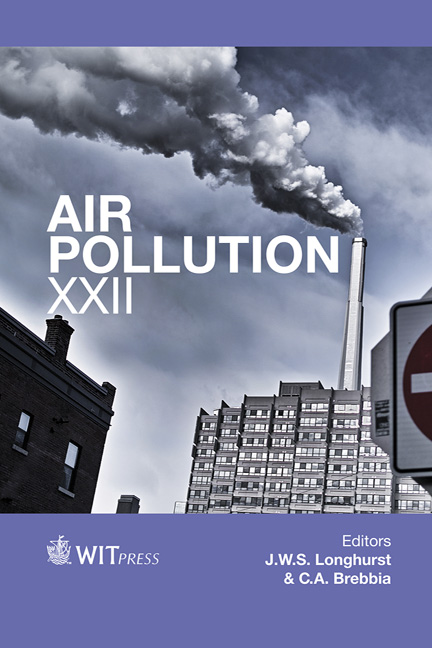Air Quality, Climate Change And Resilience In The Porto Urban Area
Price
Free (open access)
Transaction
Volume
183
Pages
11
Page Range
3 - 13
Published
2014
Size
1,412 kb
Paper DOI
10.2495/AIR140011
Copyright
WIT Press
Author(s)
C. Borrego, H. Martins, J. H. Amorim, S, Freitas & A. I. Miranda
Abstract
The combined effect of global climate change and urban growth makes people in cities more vulnerable to environmental problems like extreme weather and poor air quality. Project CLICURB aims at assessing the impact of future climate on urban areas and how cities can adapt to reduce exposure and sensitivity to those impacts. CLICURB focuses on Porto, a European urban area experiencing accelerated rates of urbanization and simultaneously presenting poor air quality. In the framework of one of CLICURB’s tasks, regarding the implementation and effectiveness of adaptation measures, the WRF-UCM-CAMx numerical modelling system was used to evaluate the effects of the expansion of Porto’s City Park on meteorology and air quality. Two high spatial resolution simulations were conducted for the study area, current and expanded, for a twoday period contained in a heat wave. Results indicate that the expansion improves local microclimatic conditions, with temperature decreases and slight increases in wind speed; regarding air quality, ground-level concentrations of pollutants present negligible variations. The project also aims to assess the effects of wind dynamics and streetcanyon configuration on pedestrian comfort. For this purpose, a micro-scale modelling approach, based on the application of Computational Fluid Dynamics (CFD) model Fluent®, was carried out for a study area with approximately 600 x 600 m2. Eight typical meteorological situations were defined based on climate observation analysis. Results allow the identification of areas non-compliant with an international criterion for human comfort and where measures for mitigating the wind speed would improve conditions for outdoor activities.
Keywords
climate change, resilience, air quality, human comfort.





